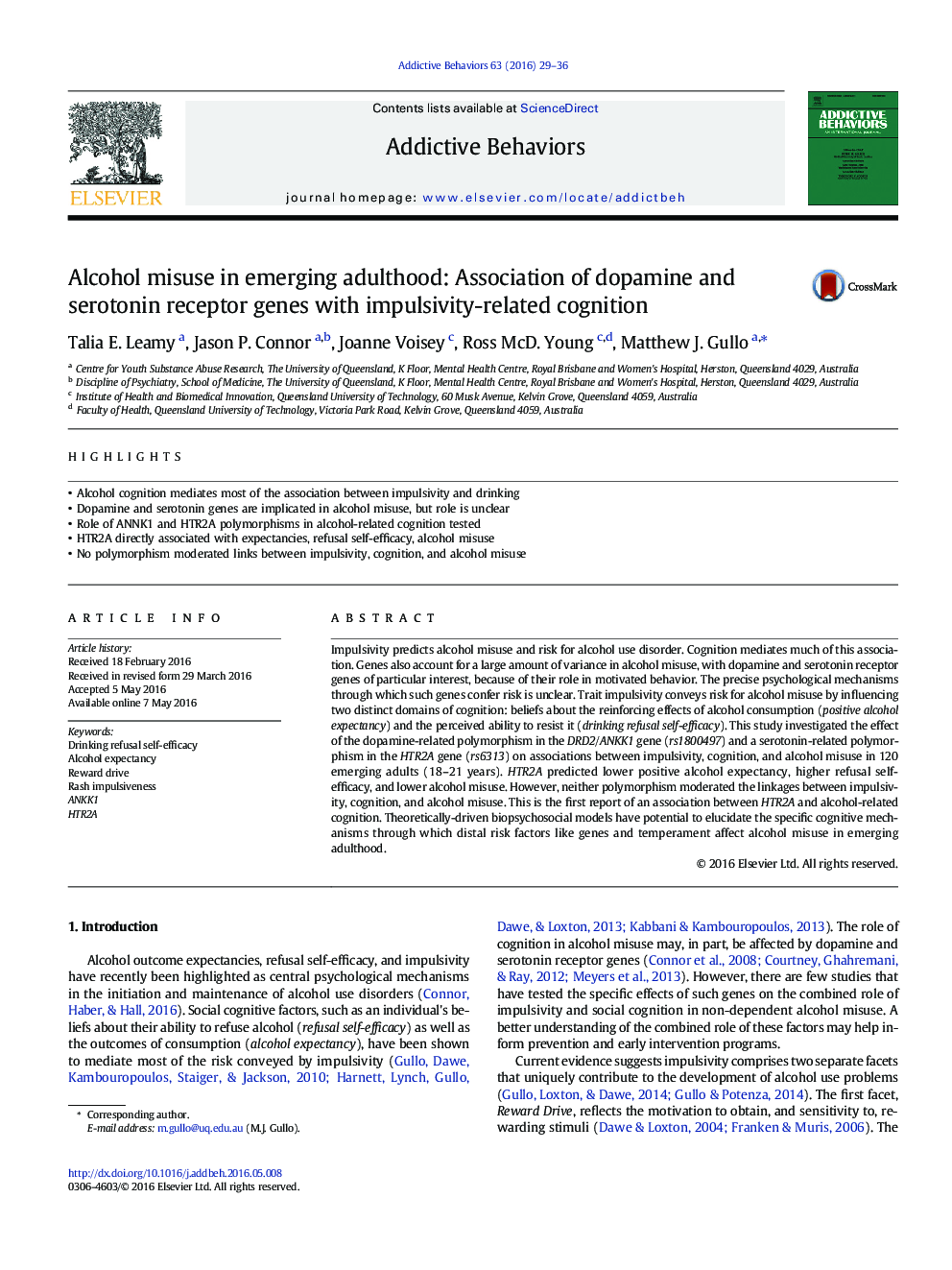| Article ID | Journal | Published Year | Pages | File Type |
|---|---|---|---|---|
| 898558 | Addictive Behaviors | 2016 | 8 Pages |
•Alcohol cognition mediates most of the association between impulsivity and drinking•Dopamine and serotonin genes are implicated in alcohol misuse, but role is unclear•Role of ANNK1 and HTR2A polymorphisms in alcohol-related cognition tested•HTR2A directly associated with expectancies, refusal self-efficacy, alcohol misuse•No polymorphism moderated links between impulsivity, cognition, and alcohol misuse
Impulsivity predicts alcohol misuse and risk for alcohol use disorder. Cognition mediates much of this association. Genes also account for a large amount of variance in alcohol misuse, with dopamine and serotonin receptor genes of particular interest, because of their role in motivated behavior. The precise psychological mechanisms through which such genes confer risk is unclear. Trait impulsivity conveys risk for alcohol misuse by influencing two distinct domains of cognition: beliefs about the reinforcing effects of alcohol consumption (positive alcohol expectancy) and the perceived ability to resist it (drinking refusal self-efficacy). This study investigated the effect of the dopamine-related polymorphism in the DRD2/ANKK1 gene (rs1800497) and a serotonin-related polymorphism in the HTR2A gene (rs6313) on associations between impulsivity, cognition, and alcohol misuse in 120 emerging adults (18–21 years). HTR2A predicted lower positive alcohol expectancy, higher refusal self-efficacy, and lower alcohol misuse. However, neither polymorphism moderated the linkages between impulsivity, cognition, and alcohol misuse. This is the first report of an association between HTR2A and alcohol-related cognition. Theoretically-driven biopsychosocial models have potential to elucidate the specific cognitive mechanisms through which distal risk factors like genes and temperament affect alcohol misuse in emerging adulthood.
